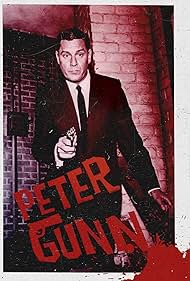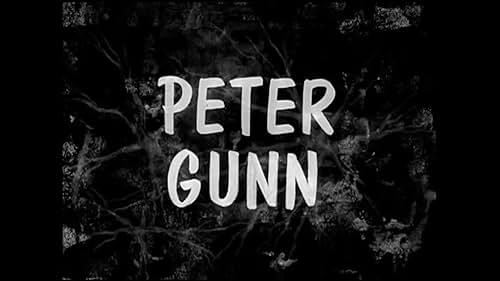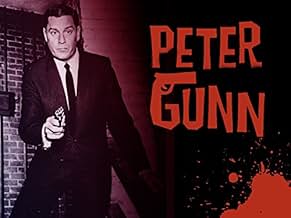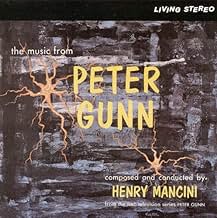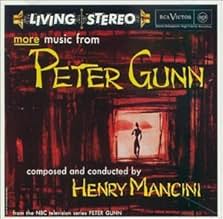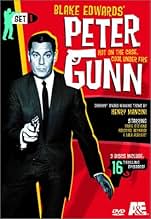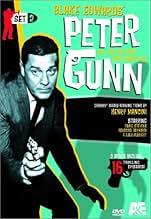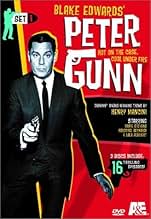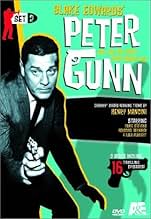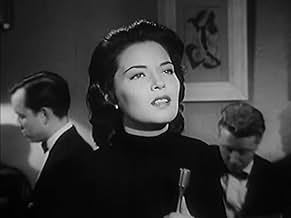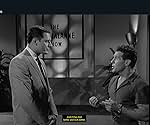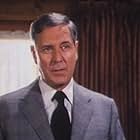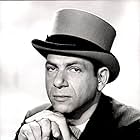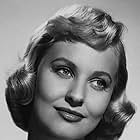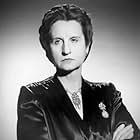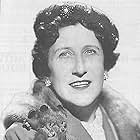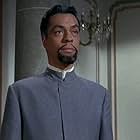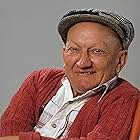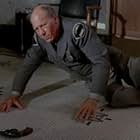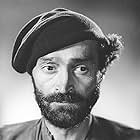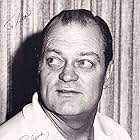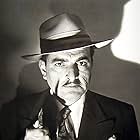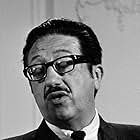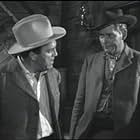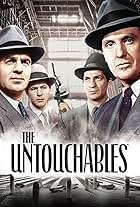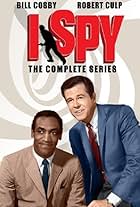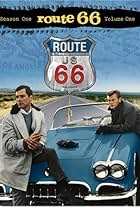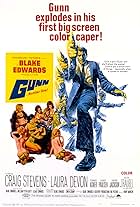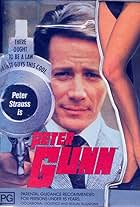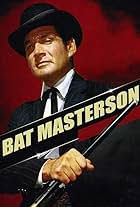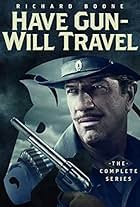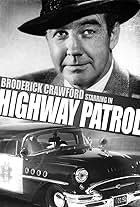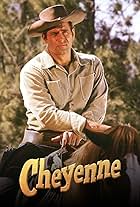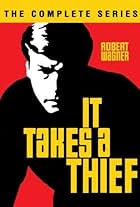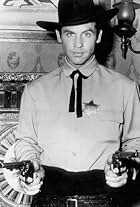IMDb RATING
8.0/10
1.7K
YOUR RATING
Peter Gunn is a private detective with a knack for finding trouble. His cases often mean he runs into the shadiest characters, most vicious thugs and the most powerful crime bosses. Cool and... Read allPeter Gunn is a private detective with a knack for finding trouble. His cases often mean he runs into the shadiest characters, most vicious thugs and the most powerful crime bosses. Cool and resourceful, he always gets the guilty party.Peter Gunn is a private detective with a knack for finding trouble. His cases often mean he runs into the shadiest characters, most vicious thugs and the most powerful crime bosses. Cool and resourceful, he always gets the guilty party.
- Nominated for 8 Primetime Emmys
- 11 nominations total
Browse episodes
Storyline
Did you know
- TriviaThe pianist who played the well known piano portion of the "Peter Gunn Theme" was future film composer John Williams. Henry Mancini later said that whenever he heard John Williams' name, he would immediately think of the "Peter Gunn Theme" before any of the other iconic music that Williams wrote.
- ConnectionsFeatured in Trancers (1984)
Featured review
Think crime shows of the 50's and you probably think Dragnet (1951-1959). Certainly, it was the most influential, presenting the LAPD as complete police professionals. Of course, there were other lesser known cop shows like Racket Squad (1951-1953) or the Lineup (1954- 1960). However, in terms of private eye crime solvers, there were very few until the end of the decade. Most crime in that decade was of the Old West variety that sheriffs solved amidst the flood of Westerns that followed Gunsmoke (1955-1975).
This remained pretty much the case until the big movie studios decided to get into the TV business. In 1958, Warner Bros. introduced the hip detective series 77 Sunset Strip (1958- 1964). Unlike its predecessors, Strip concentrated on good-looking people, hipster Edd Kookie Byrnes, and the glamorous surroundings along Hollywood's famed Sunset Strip. In short, it suggested that being a private eye doesn't have to be a grimy business, ala Sam Spade or Philip Marlowe. The series' success was quickly followed by such clones as Bourbon Street Beat (1959-1960), and Hawaiian Eye (1959-1963), all making use of the same basic formula. In short, the rising prosperity of that post-war decade was beginning to be reflected on the living room screen.
This background is worth outlining in order to provide a flavor of just how unique Blake Edwards's Peter Gunn was to the time and to the genre. Sure, 77 SS had a snappy musical lead-in, but Henry Mancini's driving jazz score signaled a new and more daring sensibility. But more significantly the jazzy motif framed both the characters and their setting as not just hip, but cool, urban cool, like in 'sophisticated'. And Edwards followed that up by wisely casting Craig Stevens as the immaculately sleek and unemotional private eye, the very essence of urban cool. Note how emotionally restrained his private eye is in most every situation.
Also worth noting is how the series populated its urban landscape with not only unusual but sometimes grotesque characters, ones never seen on network TV in those days. Note also that Gunn is portrayed as non-judgmental toward these unconventional types. He simply accepts them as part of the human landscape.
And, of course, there's also Edie (Albright) the sultry lounge singer. It's clear that her relationship with Gunn is both intimate and indifferent to the bonds of matrimony. To my knowledge, this is the first TV series to challenge that taboo even if only in implied style. Something should also be said about Mother, the proprietress of where Pete hangs out. It's clear that Mother, whether played by Emerson or Urecal, is not exactly Donna Reed. In fact she's closer to Mike Tyson, making it clear that producer Edwards is not afraid of a little gender bending, another challenge to convention of the day. In fact, the only conventional continuing character is Lt. Jacoby (Bernardi) as Gunn's cop buddy. This allows Gunn to be separate from law enforcement but not outside it—an important gesture to convention and likely TV's Standards and Practices.
Gunn is also likely the most noirish of the shows of its day. The traditional approach was high-key lighting that cast few shadows. This was also true of the other crime shows. Most of Edwards' production, however, was filmed in low-key lighting, whether dimly lit lounges or darkened city streets. My guess is that as an independently produced series, budget was as important here as was aesthetics. Anyway, the low-key lent not only atmosphere but complemented the rest of the production as a whole.
Put all these components together and Peter Gunn added up to an occasionally brilliant series even though the stories were often unexceptional. It was that overall exotic feel in contrast to those otherwise unadventurous TV years that carried the show, even down to today. All in all, Gunn was also the first series to foreshadow the coming cosmopolitan and liberalizing years of the Kennedy era. In that sense, it proved also something of a cultural milestone, and is thus worth commenting on.
This remained pretty much the case until the big movie studios decided to get into the TV business. In 1958, Warner Bros. introduced the hip detective series 77 Sunset Strip (1958- 1964). Unlike its predecessors, Strip concentrated on good-looking people, hipster Edd Kookie Byrnes, and the glamorous surroundings along Hollywood's famed Sunset Strip. In short, it suggested that being a private eye doesn't have to be a grimy business, ala Sam Spade or Philip Marlowe. The series' success was quickly followed by such clones as Bourbon Street Beat (1959-1960), and Hawaiian Eye (1959-1963), all making use of the same basic formula. In short, the rising prosperity of that post-war decade was beginning to be reflected on the living room screen.
This background is worth outlining in order to provide a flavor of just how unique Blake Edwards's Peter Gunn was to the time and to the genre. Sure, 77 SS had a snappy musical lead-in, but Henry Mancini's driving jazz score signaled a new and more daring sensibility. But more significantly the jazzy motif framed both the characters and their setting as not just hip, but cool, urban cool, like in 'sophisticated'. And Edwards followed that up by wisely casting Craig Stevens as the immaculately sleek and unemotional private eye, the very essence of urban cool. Note how emotionally restrained his private eye is in most every situation.
Also worth noting is how the series populated its urban landscape with not only unusual but sometimes grotesque characters, ones never seen on network TV in those days. Note also that Gunn is portrayed as non-judgmental toward these unconventional types. He simply accepts them as part of the human landscape.
And, of course, there's also Edie (Albright) the sultry lounge singer. It's clear that her relationship with Gunn is both intimate and indifferent to the bonds of matrimony. To my knowledge, this is the first TV series to challenge that taboo even if only in implied style. Something should also be said about Mother, the proprietress of where Pete hangs out. It's clear that Mother, whether played by Emerson or Urecal, is not exactly Donna Reed. In fact she's closer to Mike Tyson, making it clear that producer Edwards is not afraid of a little gender bending, another challenge to convention of the day. In fact, the only conventional continuing character is Lt. Jacoby (Bernardi) as Gunn's cop buddy. This allows Gunn to be separate from law enforcement but not outside it—an important gesture to convention and likely TV's Standards and Practices.
Gunn is also likely the most noirish of the shows of its day. The traditional approach was high-key lighting that cast few shadows. This was also true of the other crime shows. Most of Edwards' production, however, was filmed in low-key lighting, whether dimly lit lounges or darkened city streets. My guess is that as an independently produced series, budget was as important here as was aesthetics. Anyway, the low-key lent not only atmosphere but complemented the rest of the production as a whole.
Put all these components together and Peter Gunn added up to an occasionally brilliant series even though the stories were often unexceptional. It was that overall exotic feel in contrast to those otherwise unadventurous TV years that carried the show, even down to today. All in all, Gunn was also the first series to foreshadow the coming cosmopolitan and liberalizing years of the Kennedy era. In that sense, it proved also something of a cultural milestone, and is thus worth commenting on.
- dougdoepke
- Dec 25, 2012
- Permalink
- How many seasons does Peter Gunn have?Powered by Alexa
Details
- Release date
- Country of origin
- Language
- Also known as
- Gunn for Hire
- Production company
- See more company credits at IMDbPro
- Runtime30 minutes
- Color
- Aspect ratio
- 1.33 : 1
Contribute to this page
Suggest an edit or add missing content

